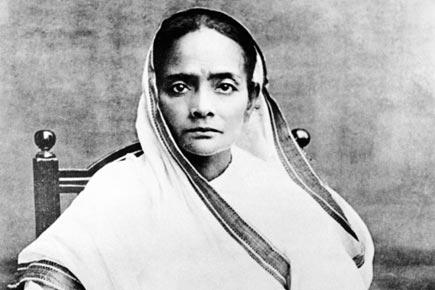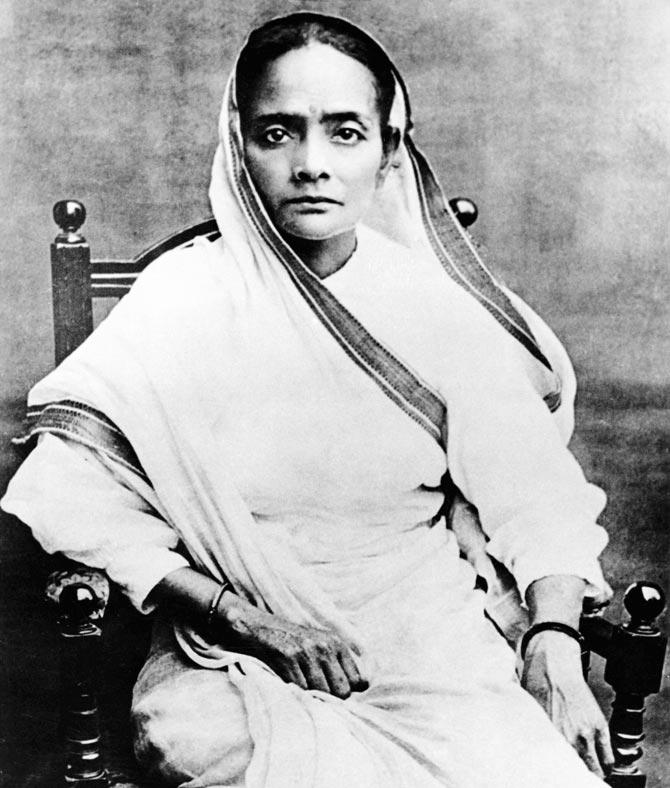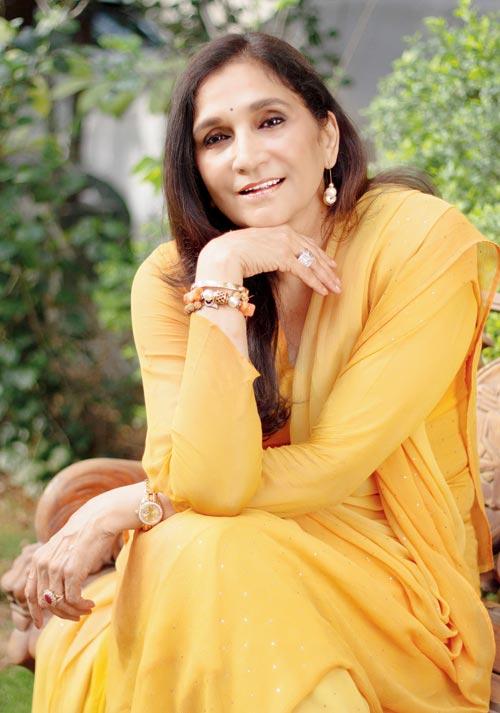Neelima Dalmia Adhar's new novel chronicles the story of a woman overshadowed by her husband, the Father of the Nation

Neelima Dalmia Adhar

Neelima Dalmia Adhar (below) says that the book stemmed from the need to tell the story of Kasturba, who despite being the wife of Mahatma Gandhi, never got her due place in history. COURTESY/WESTLAND/TRANQUEBAR VIA GETTY IMAGES
ADVERTISEMENT
 The year is 1908. Mohandas Karamchand Gandhi, who is serving a two-month jail term in Johannesburg after refusing to pay a token fine for protesting the newly introduced Immigrant Act, receives a letter from his close associate Albert West, notifying him about the deteriorating condition of his wife, Kasturba. West urges him to pay the stipulated fine and rush back to his wife in Phoenix.
The year is 1908. Mohandas Karamchand Gandhi, who is serving a two-month jail term in Johannesburg after refusing to pay a token fine for protesting the newly introduced Immigrant Act, receives a letter from his close associate Albert West, notifying him about the deteriorating condition of his wife, Kasturba. West urges him to pay the stipulated fine and rush back to his wife in Phoenix.

What follows is a concerned, but helpless husband’s letter. "My dearest Kastur, I am not in a position to come and nurse you. If I come to you now I will have to plead guilty to breaking the law. You know this is not possible. Even if you die, you will be eternally alive because your soul is deathless. On my part, I would like to assure you that I do not intend to marry another woman after your death.”
One can’t tell how Kasturba, the wife of the future Mahatma, may have taken to this ill-timed letter. At least, there is no documented evidence to say so. But, author Neelima Dalmia Adhar’s new book, The Secret Diary of Kasturba, lends her a voice. “The cold, matter-of-fact letter from my husband hit me like an avalanche of ice. To come to terms with the truth that it made little difference to Mohandas’s life, whether I was dead or alive, was painful,” she says.
Adhar’s soon to be released novel, published by Westland/Tranquebar, hopes to tell the forgotten story of a woman, who lived in the shadow of her iconic and powerful husband. “She shouldered Gandhi’s cause and was the backbone of the revolution with him. Yet, when I started reading up on Gandhi, I realised that there was nothing written on her, except for one sketchy biography by her grandson Arun and his wife,” says Adhar in a telephone chat from her home in Delhi.
While this book has evolved over a period of eight years, Adhar spent two years researching her subject. “The mainstay of my writing came from Arun and Sunanda’s book titled The Forgotten Woman and Gandhi’s autobiography, My Experiments With Truth. But, I didn’t want my book to just be a chronicle of Kasturba’s birth, marriage and death. I wanted to give it a different spin,” says Adhar, whose previous works include Father Dearest — a biography of her industrialist dad RK Dalmia — and Merchants of Death.
The result is a series of “imagined” diary entries, which chronicles the 62 years of Kasturba’s life as a pampered daughter, obedient wife, sacrificial mother and devoted satyagrahi. “To make that leap into her space wasn’t a conscious effort,” says Adhar of her novel. “For some reason, Kasturba’s life resonated with my own family. In her, I saw my mother [Padma Bhushan awardee Dinesh Nandini Dalmia], also the wife of a very successful industrialist RK Dalmia, who had a turbulent relationship with his wives and children. It was almost as if I was reliving that story,” says Adhar.
The only difference was that it was Adhar, and not Kasturba, relaying the latter’s story. And, the writer is well aware of that. “It is just me as a woman of the 21st century, juxtaposing myself onto her mind, and imagining how she would think, speak or react in a certain situation,” says Adhar of her work, which she describes as “bio-fiction”. “It is neither fiction nor fact. It is an amalgamation of both,” she says.
“I have been extremely anal about sticking to facts and details. And, I haven’t wavered one millimetre when it came to getting my history right, simply because I did not want to tread in territory where I could be challenged for stating something not documented or that may not be true. The only time I drifted is when I presented Kasturba’s character in my mould and tried to analyse her mind, environment and the social milieu she was brought up in.”
But, Adhar admits, in writing this book she was walking on eggshells. “It is dangerous because by touching upon a subject that is otherwise considered taboo, I am challenging all kinds of forces around me. We live in an age where an uninformed group could pick up a single word, quote it out of context, and create a huge anti-reaction. But, to be honest, I had absolutely no fear when writing this book,” she says.
“With this portraiture of a woman who everyone wants to know about, I have done society a good deed. Her story needed to be told,” she adds.
Adhar would like to describe Kasturba’s relationship with the Mahatma as one that was volatile and subservient at the same time. “They were two very powerful individuals brought together by providence. Gandhi’s contribution to India’s freedom struggle is unchallengeable, she says. “But, without passing judgement, I would say that it was Kasturba’s karmic debt to be the Mahatma’s wife,” she says. “She is the quintessential Indian woman, the emerging feminine Shakti who is relevant from the time of the Mahabharata till today. She can alter, adapt and take on all kinds of hardship, and yet emerge stronger than the man she is married to.”
 Subscribe today by clicking the link and stay updated with the latest news!" Click here!
Subscribe today by clicking the link and stay updated with the latest news!" Click here!






